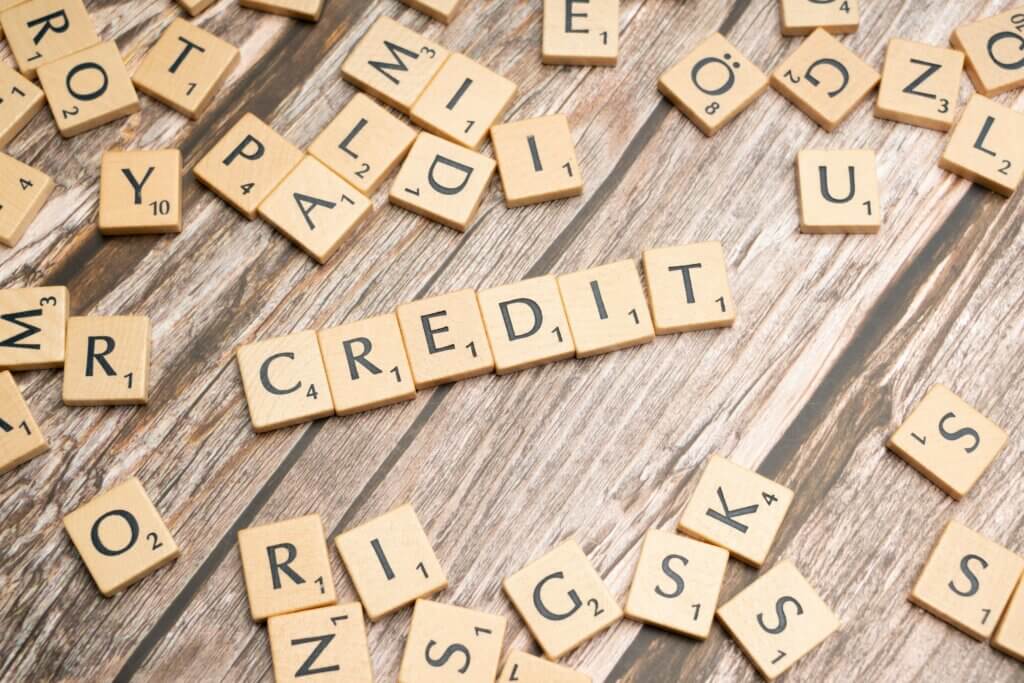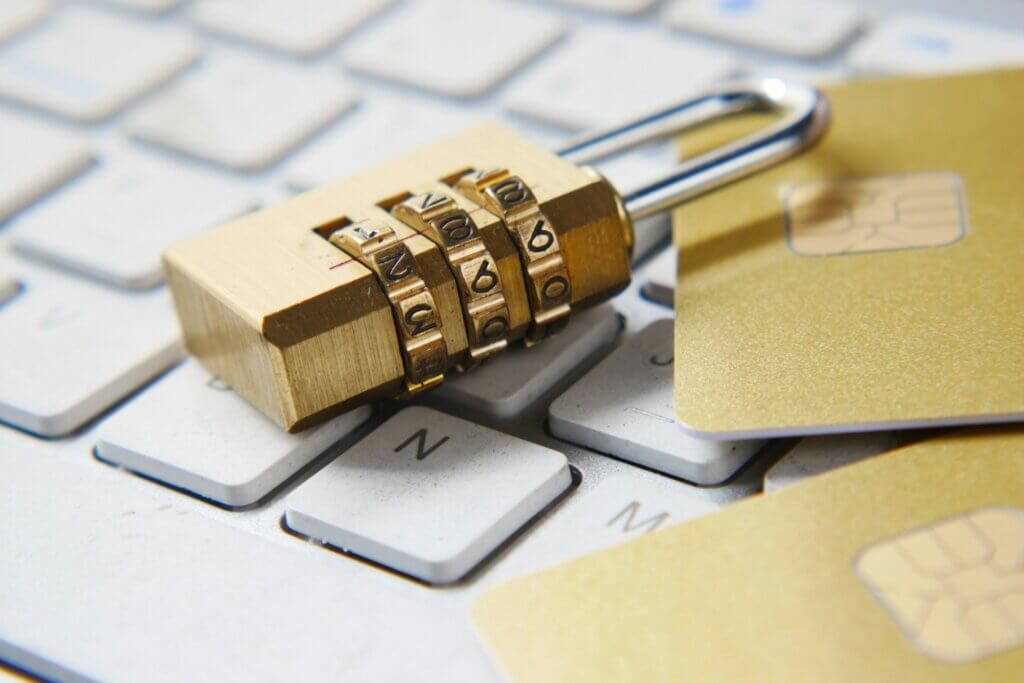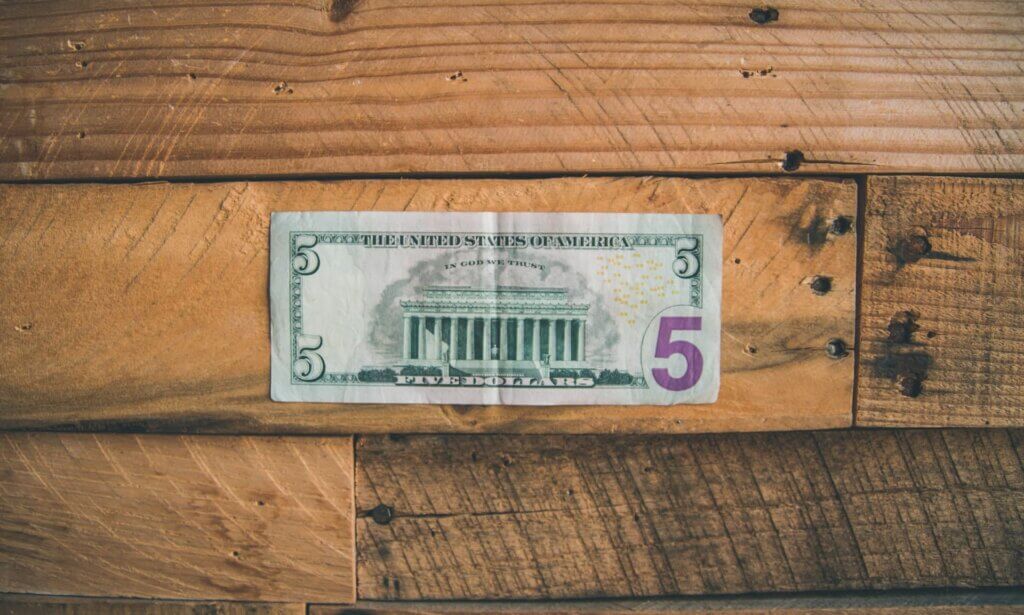“I know I need to build credit, but I have no idea where to start.”
Sound familiar? You’re not alone. The world of credit can feel overwhelming when you’re starting from scratch.
When you have little or no credit history, lenders are less likely to give you a chance to prove yourself. That makes it challenging to build credit in the first place.
The good news? Building credit for beginners isn’t that hard, and you don’t need to be a financial expert or have tons of money to do it.
Read our helpful article to find out what credit actually is (in plain English), why building credit early makes a difference, and simple, practical steps you can take today to get started—even if you’ve never used credit before.
What Does Building Credit Mean?
You’ve probably heard the term “credit” tossed around, but what does it actually mean?
Simply put, credit is borrowing money or services with a promise to pay later. Every time you swipe a credit card, take out a student loan, or set up your cell phone service, you’re using credit—you get something now and agree to pay for it in the future.
Imagine you loan a friend $50. If they repaid you when promised, you’d likely loan them money again in the future. But if they conveniently “forgot” to pay you back, you’d probably think twice before letting them borrow money again.
Lenders think the same way. Before loaning you money, they want evidence that you’ll keep your promises. Your credit history answers the question: “Will this person pay us back as agreed?”
Building credit for beginners means creating a record that shows you can be trusted with borrowed money. It involves three key components:
- Credit history: Your record of payments on loans, credit cards, and other financial obligations.
- Credit reports: Documents mainly maintained by the three major credit bureaus (Experian, TransUnion, and Equifax) that track your credit-related activities.
- Credit score: A number from 300-850 that summarizes your creditworthiness. The higher your score, the better your credit is considered to be.
When you’re just starting out, you have what lenders call a “thin file” or no file at all, meaning you have little to no credit history for them to evaluate.
It’s a classic catch-22: You need credit to build credit, but it can be difficult to find a lender willing to give you that first opportunity.
However, there are ways to do it.
The process is straightforward: You start with a simple credit product (like the ones listed below), make payments on time, and keep your balances low. These actions get reported to the credit bureaus, gradually creating a positive history that shows lenders they can trust you.
The Benefits of Building Good Credit Early
If you’re wondering when to build credit, there’s no time like the present.
Your credit journey is uniquely yours, and starting early gives you a head start on opening doors to future opportunities. While building good credit takes time, the benefits grow with you throughout your financial life.
An Established Credit History
Building credit early helps you avoid the frustrating catch-22 of needing credit to get credit.
Consider these real-life situations where credit history matters:
- Renting your first place: Most landlords run credit checks. With no credit, you might need a co-signer (someone with good credit who’s responsible for paying if you can’t) or potentially have to pay a bigger security deposit upfront.
- Getting utilities connected: Without credit, expect to pay security deposits for electricity, gas, water, and internet service—costs that add up quickly when you’re first moving out.
- Buying a phone: Those “free phone with new line” deals? They usually require passing a credit check. No credit often means buying the phone outright or paying a hefty deposit.
- Buying a car: Auto lenders generally offer better interest rates to borrowers with good credit, potentially saving them thousands of dollars in interest over the life of the loan.
Starting your credit journey now means these everyday transactions may be easier and less expensive for you in the future.
Job Opportunities
Some employers include credit checks as part of their hiring process—a practice that, while controversial, is legal in many states.
Employers can’t see your actual credit score, but they can view a modified version of your credit report. According to a survey by the National Association of Professional Background Screeners (NAPBS), nearly 32% of organizations check credit during the hiring process for some positions.
This practice is most common for positions with financial responsibilities (like handling company funds or making financial decisions), management roles that oversee budgets, government positions (especially those requiring security clearance), and jobs with access to sensitive data.
Keep in mind that:
- A credit check is typically just one factor in the hiring process.
- Most employers are looking for financial responsibility, not perfect credit.
- Employers are often more concerned with severe problems (like defaults and bankruptcies) than minor issues.
- Many companies only check credit for specific positions, not all roles.
Your credit history might be viewed as one indicator of reliability and responsibility—important qualities in the workplace. Remember, though, that a few credit hiccups are unlikely to disqualify you from most jobs.
Financial Growth
Good credit is a powerful tool that can save you money and create opportunities.
The long-term benefits of building credit for beginners are substantial:
- Lower interest rates: The higher your credit score, the more likely you are to get better interest rates, potentially saving you thousands on mortgages, car loans, and other financing.
- Better insurance premiums: In many states, insurance companies base your rates on your credit history. Better credit often means lower premiums for auto and home insurance.
- Access to better financial products: As your credit improves, you’ll qualify for credit cards with better rewards and lower fees, loans with favorable interest rates and repayment terms, higher credit limits, and money-saving special financing offers.
- More opportunities: Strong credit makes it easier to secure funding for future goals like buying a home, starting a business, or investing in other opportunities.
Building credit now is an investment in your financial future, as you’ll get better options and keep more money in your pocket over your lifetime.
Essential Steps for Building Credit for Beginners
Now that you understand when to build credit, let’s look at some of the most effective methods for building credit for beginners.
1. Get a Credit Card
You might be asking yourself, when should I get a credit card? The answer: As soon as you can, if you can qualify and it makes sense for your situation.
Your first credit card is often the simplest entry point to establishing your credit history. Credit cards are more accessible than loans when you’re just starting out, and they report your activity to credit bureaus monthly.
Here are some options to consider:
Student Credit Cards
If you’re in college, these specialized cards are designed with you in mind:
- Lower credit limits (often starting at $500) to help prevent overspending.
- No annual fee in most cases.
- Student-specific perks like cash back on textbooks or rewards for good grades.
- More lenient approval requirements compared to regular cards.
Financial companies like Capital One and Discover offer popular student cards that report to all three major credit bureaus, which helps build your credit history.
Secured Credit Cards
Not a student? Secured cards are specifically designed for credit building for beginners:
- You provide a cash security deposit (usually starting at $200) that becomes your credit limit.
- The deposit reduces the bank’s risk, making approval easier even with no credit.
- After 6-12 months of responsible use (making on-time payments and keeping balances low), many lenders will increase your limit or return your deposit and upgrade you to a regular unsecured card.
Several major banks and credit card companies offer secured cards designed for credit building.
Become an Authorized User
If you have a trusted family member with good credit, this option lets you benefit from their established credit history with minimal risk.
The authorized user approach works because:
- You’re added to someone else’s existing credit card account.
- Their payment history appears on your credit report, even if you never use the card.
- The primary cardholder maintains full legal responsibility for all charges (although they may ask you to pay for any purchases you make).
For example, Carlos wanted to start building credit during college, so his aunt added him as an authorized user on her credit card. She kept the physical card herself, so Carlos couldn’t actually make purchases, but her excellent payment history appeared on his credit report. Within months, Carlos was able to qualify for his own student credit card.
Before choosing this option, verify that the credit card company reports authorized user activity to the credit bureaus. Most do, but it’s worth confirming.
2. Use Credit Responsibly
Having a credit card only helps if you use it wisely. Follow these guidelines to ensure you’re building positive credit:
- Pay on time, every time: Payment history is the most important factor in your credit score. Late payments can negatively impact your score and remain on your report for years. Set up automatic payments for at least the minimum amount due, or create calendar reminders several days before your due date. Many card issuers also offer text or email alerts.
- Keep utilization low: Credit utilization—the percentage of your available credit that you’re using—significantly impacts your score. Aim to keep it under 30%: Meaning if you have a $1,000 credit limit on your card, try to keep your balance under $300. Monitor your balance regularly. You can check it online or through your card’s mobile app any time.
- Make small, regular purchases: Using your card for a few small, predictable expenses (like a Netflix subscription or weekly gas fill-up) ensures regular activity while making it easier to pay off the full balance each month.
- Pay in full when possible: While making minimum payments is better than missing payments, carrying a balance means paying interest, sometimes at rates above 20%. Pay your balance in full each month to avoid unnecessary costs.
Apps, products themselves, or simple reminders can go a long way to help you follow these habits. For example, Taylor set up her credit card to automatically pay her monthly gym membership. She then set up automatic payments to pay the entire card balance each month. This simple system helped her build credit over time.
3. Apply for Loans Wisely
While credit cards are usually the first step, adding different types of loans can strengthen your credit history by showing you can manage a variety of financial obligations.
Student Loans
Both federal and private student loans appear on your credit report:
- They show up on your credit report even during grace periods or deferment.
- Once you begin making payments, your positive payment history helps build your score.
- They add installment loan history (loans with fixed payments) to your mix, complementing revolving accounts like credit cards.
As this might very well be your first loan, make sure you do your research, and be wary of companies that offer paid advice, or straight-out student loan scams.
Credit-Builder Loans
As their name implies, these loans are specifically designed for credit building:
- The lender holds the money you “borrow” in a secured account while you make payments.
- After making all the payments, you receive the full loan amount minus any fees and interest.
- Your payment history gets reported to the credit bureaus.
- Loan amounts are typically small ($300-$1,000), making payments more manageable.
Many credit unions and community banks offer credit-builder loans with reasonable fees.
Auto Loans
If you need a car and can afford the payments, an auto loan can help diversify your credit:
They are sometimes easier to qualify for than other types of loans because the vehicle itself serves as collateral (meaning the lender can take the car if you don’t pay, which reduces their risk).
Keep in mind that first-time borrowers might still need a co-signer or should expect higher interest rates until they’ve built more credit history.
As a general note, only take out loans when you genuinely need them and can comfortably manage the payments. Taking on debt solely to build credit can backfire if the payments strain your budget.
What To Avoid When Building Credit
Building good credit isn’t just about doing the right things. It’s also about avoiding common pitfalls that can derail your progress.
Applying for Multiple Credit Credit Products
Each application typically causes a “hard inquiry” on your credit report, which can temporarily lower your score by a few points.
Many applications in a short period might suggest to lenders that you’re seeking credit from various sources, which could be viewed as financially risky behavior.
Kudzu tip: Research carefully and apply for just one credit card or loan that fits your situation. If you’re denied, wait at least 3-6 months before applying for a different one.
Missing Payments
A payment that’s over 30 days late can damage your credit score and may remain on your report for up to seven years.
If you’re struggling to make a payment, contact your lender before the due date—many have hardship programs or can work with you on a solution.
Kudzu tip: Setting up automatic payments for at least the minimum amount due can prevent accidental missed payments.
Closing Old Accounts
It seems logical to close credit cards you no longer use, but this can actually hurt your score in two ways.
To begin with, you lose that available credit, which can increase your overall credit utilization.
But you also potentially shorten your credit history length, which factors into your score.
Kudzu tip: Once you graduate to better credit cards, keep your starter card open (as long as it has no annual fee). Use it occasionally for small purchases to keep it active.
Building Strong Credit Foundations for Your Future
Good credit is built through consistent habits, not overnight success. The small steps you take today create financial opportunities for tomorrow, as your financial opportunities grow with your credit.
Building excellent credit takes time, and the most important thing is to begin your credit journey now. Start small, stay consistent, and be patient.
Kudzu’s features are designed to help you create strong financial habits along the way.
- SpendSense Alerts help you track spending and avoid missed payments.
- Savings Habits makes it easier to build emergency funds so unexpected expenses don’t derail your credit-building progress.
- PayPerks resources provide helpful guidance to deepen your understanding of credit and personal finance.
Download the Kudzu app and take the first step in your credit-building journey today.



